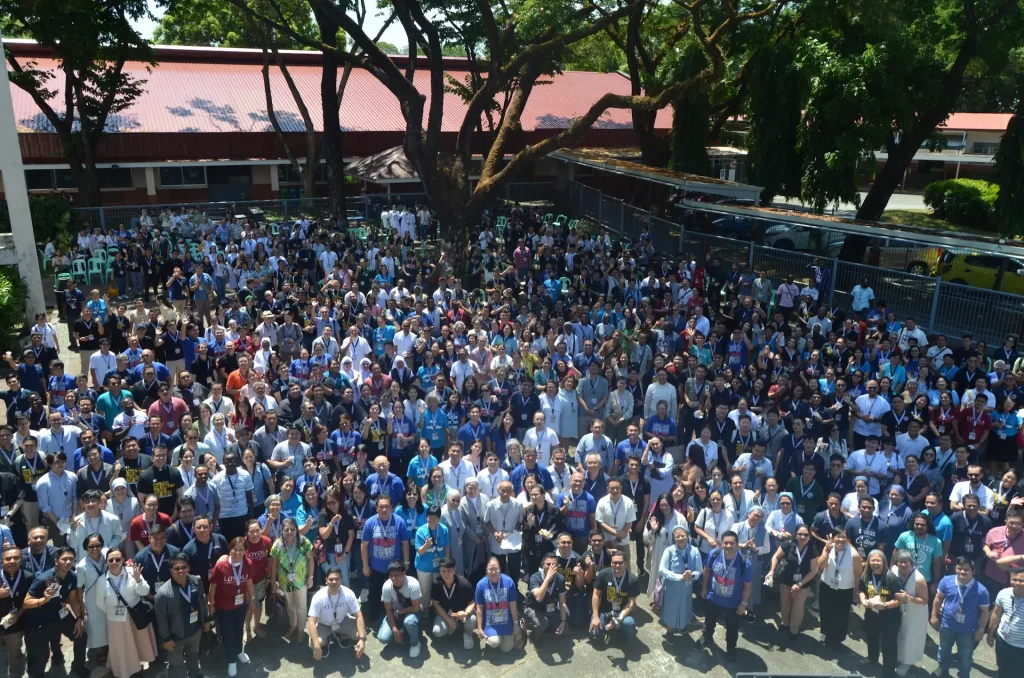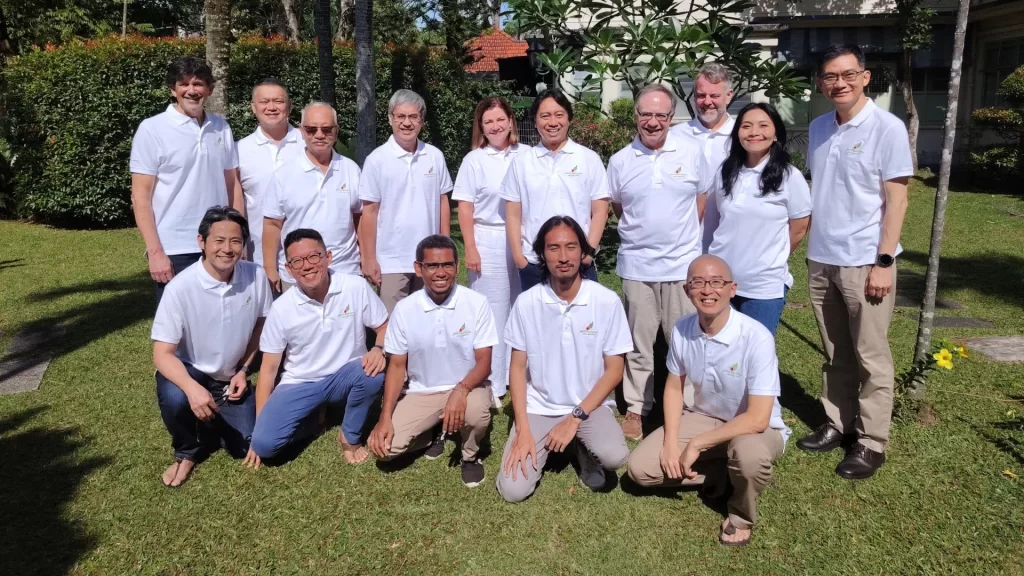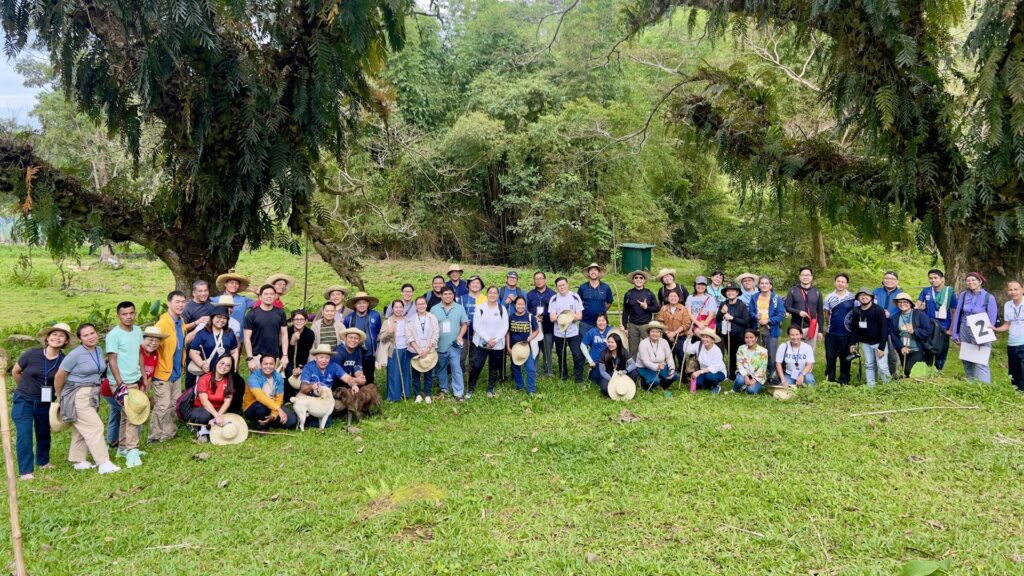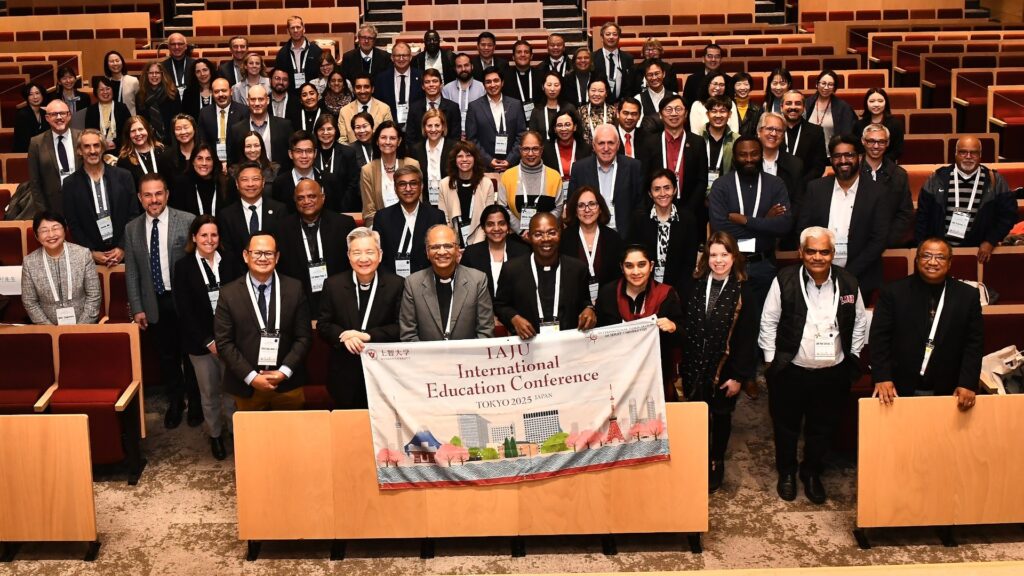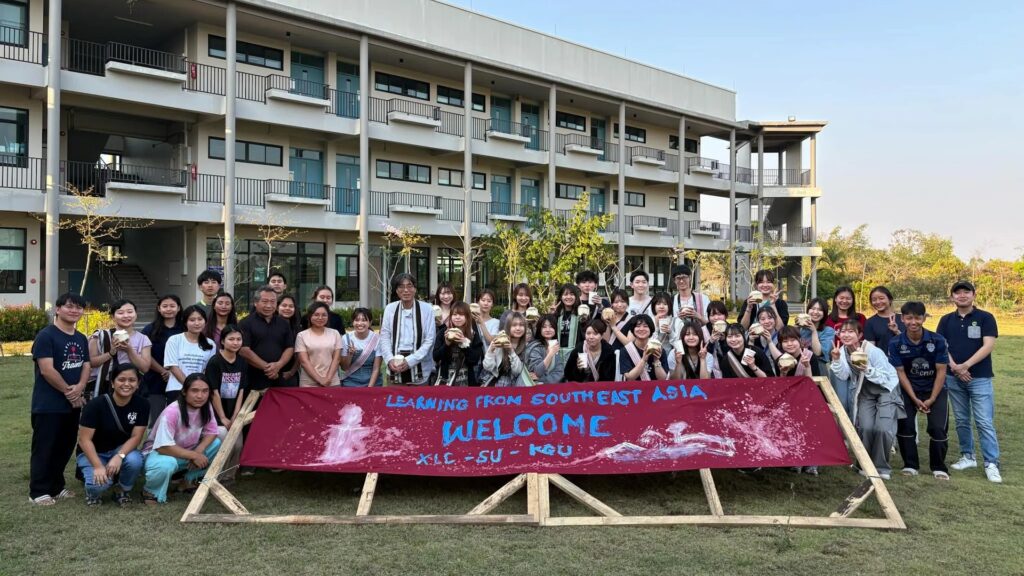The two concerts were organised to raise awareness and funds for Xavier Jesuit School, the Jesuit education project in Cambodia. That they did and more. The two nights of awe-inspiring classical music led the school project team to an audience with King Norodom Sihamoni of Cambodia.
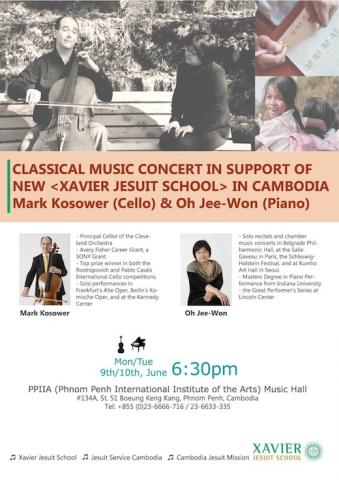
As a local musician, Tara Mar, wrote afterwards “I attended both cello-piano concerts and just wanted to thank you so very much for your efforts in organizing such an inspiring concert. Their performance was of such high quality that we could have been sitting in a concert hall in the heart of New York City, London or Paris. The performance, the musicality, the mastered technical ability were so impressive. I have not seen the likes of this in my three years living in Phnom Penh”.
The concerts gave Fr Oh the opportunity to tell Cambodian and foreign dignitaries about the four components of the education project in Banteay Meanchey Province – the Community Learning and Teacher Resource Centres and the primary and secondary schools. Among the distinguished guests was His Excellency Son Soubert, High Privy Councillor to the King and a Jesuit school alumnus. He is an old companion of the Jesuits who worked in the Khmer refugee camps in Thailand many years ago, and has been asking the Jesuits to open a school in Cambodia for the last 20 years. He is only disappointed that the school will not be on his own land!
His Excellency suggested that the time had come for the Jesuits and partners involved in the education project to seek an audience with King Sihamoni. Fr In-don agreed.
So it came to be that at 11 am on Wednesday, July 23, 2014, His Majesty King Norodom Sihamoni, King of Cambodia, received Msgr Enrique (Kike) Figaredo SJ, Apostolic Prefect of Battambang, and members of the Xavier Jesuit School team to an audience at the Royal Palace of Phnom Penh. They were joined by two Cambodian Jesuit school alumni, Prince Sisowath Samyl Monipong and His Excellency Son Soubert.
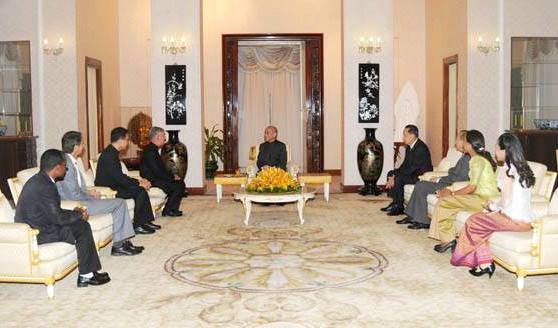
Msgr Figaredo recounted the Jesuit involvement with Cambodia and the sufferings of its people, beginning in the refugee camps with the late Fr Pierre Ceyrac SJ and his team during the 1980s and then with the vocational school for the war disabled at Banteay Prieb during the 1990s, which led to Pope John Paul II assigning the responsibility of the Battambang Prefecture to the Society of Jesus in the year 2000.
His Majesty conveyed his profound gratitude and appreciation for the work of the Jesuits on behalf of the poor and disabled over many years in Cambodia.
Fr Evans then presented the education project outlining the long consultation process that resulted in its location in Teuk Thla commune, Sereisophon city, in Banteay Meanchey province. He explained that the project would begin with a Community Learning Centre first.
His Majesty warmly welcomed the initiative, and expressed his deep gratitude, appreciation and esteem for the contribution of the Jesuits to the education and moral formation of youth in Cambodia. The audience ended at 11.30 am.
Br Ham Toeun commented afterwards: “I am so happy to meet His Majesty and I hope that his encouragement will reach the hearts of all those who work and study at Xavier Jesuit School in Banteay Meanchey. After the meeting I felt that Cambodian education will be better in the future.”
Ms Srey Ponhacka also left feeling encouraged. “I was impressed that His Majesty took so much interest in the Jesuit education project and supported it so strongly”.
A video recording in Khmer of this audience with His Majesty was broadcast on Khmer National television the following day, indicating clear royal approval of the new Jesuit school project in Banteay Meanchey Province.
Find out more about Xavier Jesuit School here.


